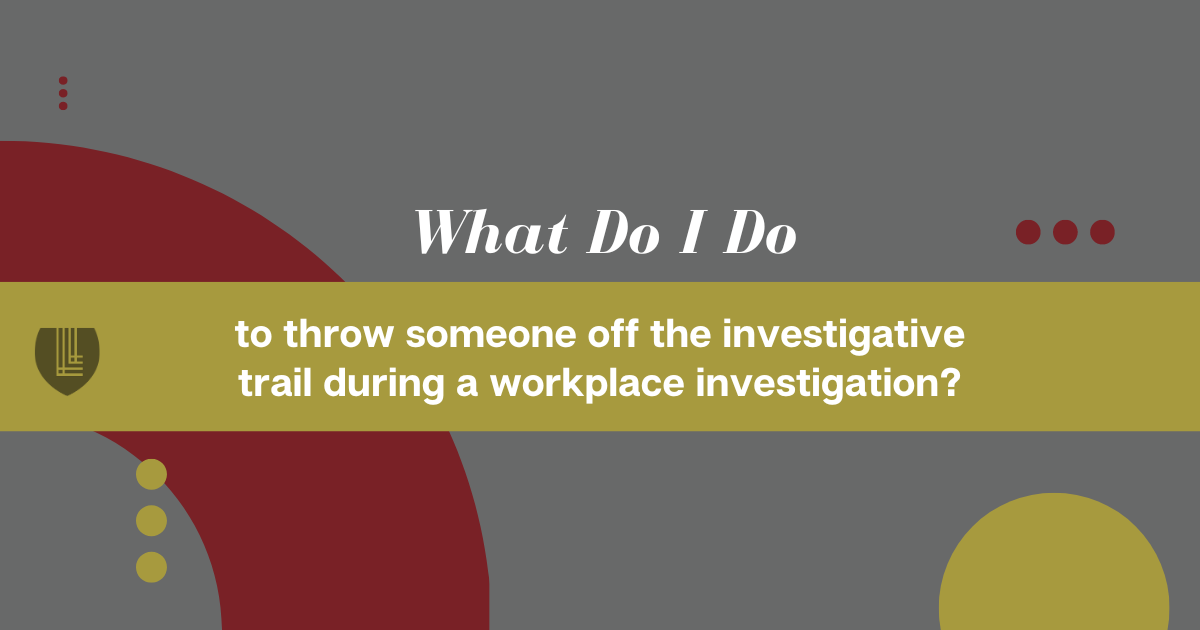Natalie Lynch is your credentialed investigator and licensed attorney, not a vlogger.
How do you maintain investigative confidentiality when the nature of the questions you’re asking basically tells people what you’re investigating?
I think this is a little bit less of an issue than it used to be, because people have gotten somewhat savvy to the workplace investigation – but also because post-MeToo and post-Black Lives Matter, pehttps://youtu.be/-EsaFDX-ijkople know what companies spend money on to investigate.
That being said, particularly maybe a theft, a physical-type investigation – sometimes throwing people off is still super important. And so the thing that I learned to do that really does work pretty well: I guess two things.
So first of all, my style of questions tends to be circular. And so I go into an interview, and I have a list of questions I want to ask. And I’ll start going down my list, but I will mark when things are not satisfactorily answered. And I will randomly circle back to them. And that tends to get people a little thrown off of me or my questioning scheme.
But the other thing that we were taught to do, and I still do in fact do, is: let’s say there are three male managers, and I’m investigating one of them for harassment. I’m going to ask the exact same questions about all three of those managers, so they don’t know which one I’m asking about.
Again, people are sometimes savvy enough or the issue has brewed long enough that people will understand what’s going on, but a lot of times they don’t. And a lot of times I can get some really good information by asking questions about everybody.
And so if I’ve asked five questions about my accused, I’m going to ask five questions about the other two guys – just to make sure that, should that person engage in gossip after they leave my interview room, that they’re not entirely sure what they’re gossiping about.
For more legal investigation advice, like and subscribe.
